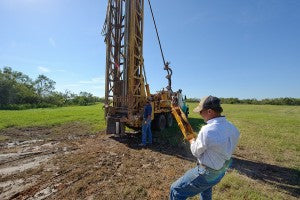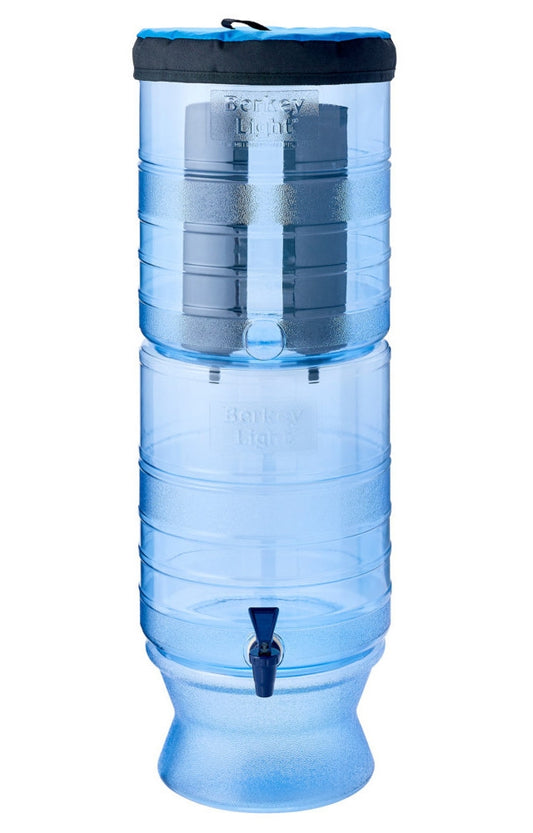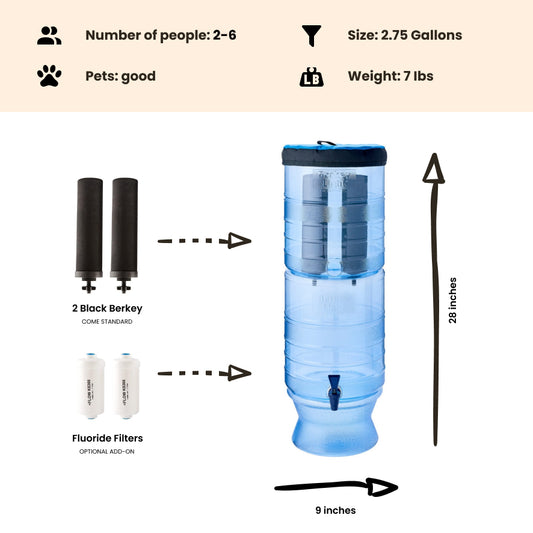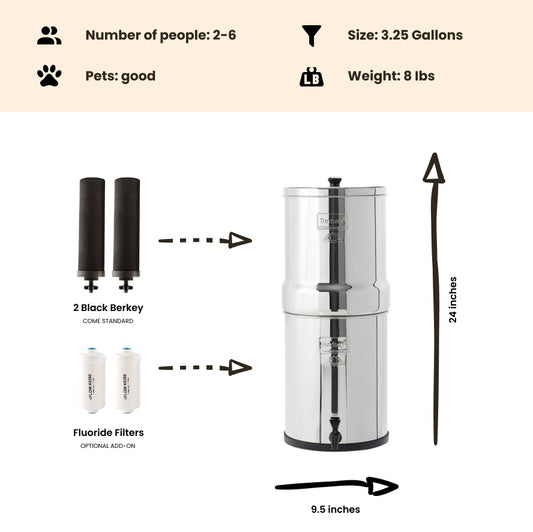
Americans Drilling Wells Deeper Than Ever Before to Access Fresh Water
By Dan DeBaunShare
Groundwater provides the life blood for more than 100 million American who depend on it for their drinking water or livelihoods. Unfortunately, wells that provide this water are starting to run dry and researchers are only just beginning to grasp the complex issues surrounding groundwater use.
A team of researchers from University California Santa Barbara recently conducted a comprehensive assessment of groundwater wells across the country, analyzing data collected from approximately 12 million wells located all over the country, which involved sifting through records that stretch back decades.
For the study, which was recently published in Nature Sustainability, the authors wanted to answer several questions related to groundwater usage. First they had to pinpoint the location of wells across the country and identify whether they provided water for domestic, agricultural or industrial water needs. Then they wanted to keep track of well depths in different locations to ascertain whether wells are being drilled deeper as time goes by.
The authors collected information pertaining to wells located all over the country, focusing specifically on regions such as California's Central Valley that are known to rely on groundwater to meet their water demand. As groundwater management typically falls under state departments, the authors had to pour through data acquired from a number of different sources, which according to lead author, Debra Perrone, assistant professor of environmental studies as UC Santa Barbara, "proved to be one of the biggest hurdles," a feat that took around four years to complete.
Scientists are aware that some wells are starting to run dry due to groundwater depletion. When conditions are favorable, drilling new, deeper wells can temporarily address this issue, but the cost of drilling can be a stumbling block. The authors found that the depth of new wells is increasing and new wells are 1.4 to 9.2 times more likely to be drilled deeper than shallower.
Furthermore, the authors found that the trend of drilling deeper wells is widespread. The study shows that in 79% of the areas surveyed, wells were becoming deeper over a long timespan stretching from 1950-2015, with California's Central Valley, the Atlantic Coastal Plain, and the High Plains of southwestern Kansa, as well as other regions being hotspots for deeper drilling activity.
According to Perrone, the reason for drilling wells deeper vary. In some cases people may drill deeper in an effort to avoid contamination that may seep into groundwater from above ground. Others may be wanting to find additional water sources, or to access groundwater with less strict withdrawal regulations.
"What we're finding is that in places where water levels are declining, some people are drilling deeper, maybe to avoid having their primary water supply go dry," Perrone said. "Regardless of the reasons why Americans are drilling deeper, we suggest that deeper well drilling is an unsustainable stopgap to groundwater depletion."
There are four key reasons why drilling deeper won't provide a long-term solution for our water woes. Firstly, it is more expensive to drill deeper and requires more power to pump water from a greater depth that it does to pump water located near the surface. Geology poses a challenge too, as groundwater extraction becomes less conducive in deeper strata. Finally, as groundwater tends to become saltier with depth, at some point it will need to be treated first before it can be used. This can effectively limit the depth at which it is viable to drill in search of water, and is particularly problematic for rural communities.
"Groundwater is a crucial resource for rural communities. Our previous work found that rural groundwater wells are especially vulnerable to going dry," said Perrone. "What's more, these communities often have less capacity to update their groundwater infrastructure," explains Perrone. "Groundwater is also important to the agricultural sector, which often relies on it for irrigation, especially during droughts," she added.
To address this challenge, deliberate governance and management of groundwater is needed. We need to become more aware of how groundwater is used, and install measures that are more effective at monitoring and regulating these practices. Scientists are currently researching managed aquifer recharge, a management approach that encourages water (surface water, storm water or treated wastewater) to filter back underground to replenish aquifers. Some areas, particularly drier areas, are also considering promoting or extending the use of recycled wastewater.
Journal Reference Debra Perrone & Scott Jasechko. Deeper well drilling an unsustainable stopgap to groundwater depletion. Nature Sustainability, 2019; DOI: 10.1038/s41893-019-0325-z-
Regular price From $302.00 USDRegular priceUnit price / per
-
Regular price $234.00 USDRegular priceUnit price / per
-

 Sold outRegular price From $305.00 USDRegular priceUnit price / per
Sold outRegular price From $305.00 USDRegular priceUnit price / per -
Regular price $327.00 USDRegular priceUnit price / per
-

 Sold outRegular price From $367.00 USDRegular priceUnit price / per
Sold outRegular price From $367.00 USDRegular priceUnit price / per -
Regular price From $408.00 USDRegular priceUnit price / per
-
Regular price From $451.00 USDRegular priceUnit price / per

Dan DeBaun
Dan DeBaun is the owner and operator of Big Berkey Water Filters. Prior to Berkey, Dan was an asset manager for a major telecommunications company. He graduated from Rutgers with an undergraduate degree in industrial engineering, followed by an MBA in finance from Rutgers as well. Dan enjoys biohacking, exercising, meditation, beach life, and spending time with family and friends.
~ The Owner of Big Berkey Water Filters
















